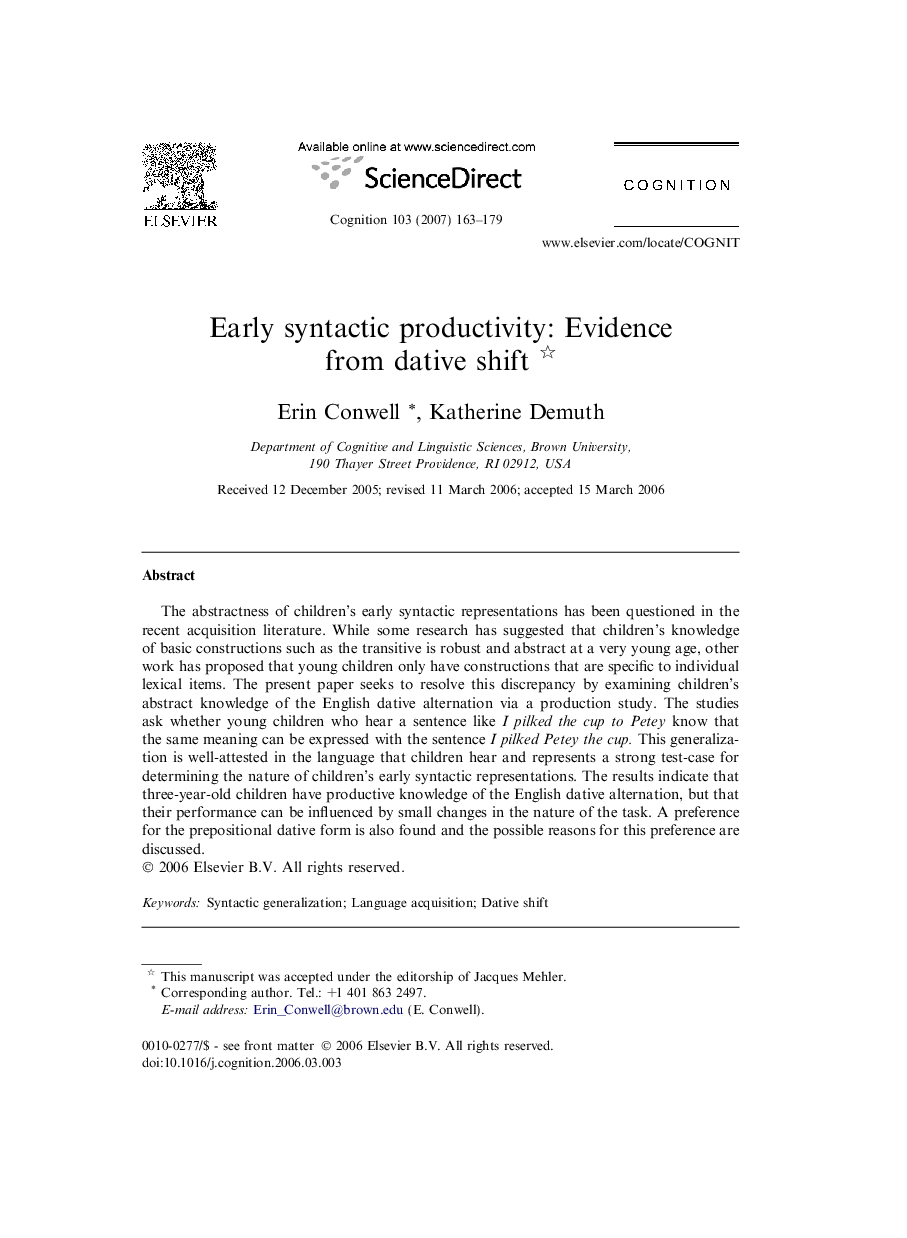| Article ID | Journal | Published Year | Pages | File Type |
|---|---|---|---|---|
| 927480 | Cognition | 2007 | 17 Pages |
The abstractness of children’s early syntactic representations has been questioned in the recent acquisition literature. While some research has suggested that children’s knowledge of basic constructions such as the transitive is robust and abstract at a very young age, other work has proposed that young children only have constructions that are specific to individual lexical items. The present paper seeks to resolve this discrepancy by examining children’s abstract knowledge of the English dative alternation via a production study. The studies ask whether young children who hear a sentence like I pilked the cup to Petey know that the same meaning can be expressed with the sentence I pilked Petey the cup. This generalization is well-attested in the language that children hear and represents a strong test-case for determining the nature of children’s early syntactic representations. The results indicate that three-year-old children have productive knowledge of the English dative alternation, but that their performance can be influenced by small changes in the nature of the task. A preference for the prepositional dative form is also found and the possible reasons for this preference are discussed.
